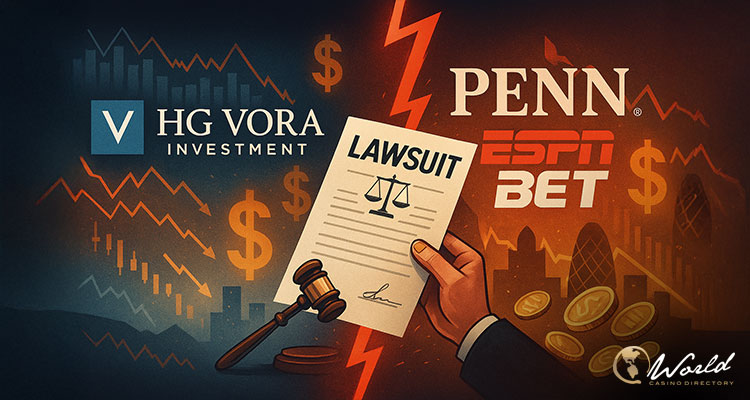HG Vora Capital Management, a New York-based investment firm, has filed a lawsuit in the U.S. District Court for the Eastern District of Pennsylvania against Penn Entertainment, Inc. The complaint accuses the company of breaching Pennsylvania’s Business Corporation Law and violating federal securities laws by reducing the number of board seats available for election in its upcoming 2025 Annual Meeting. The suit was filed after Penn’s controversial decision to decrease the number of open seats from three to two—a move HG Vora argues was made to undermine shareholder influence and maintain control over the board during a contested election.
The dispute over board elections:
At the heart of the legal battle is Penn’s decision to cut the number of director seats up for election just ahead of its Annual Meeting. According to Business Wire, initially, Penn had stated that three board seats would be available, which allowed HG Vora to nominate three candidates: Johnny Hartnett, Carlos Ruisanchez, and William Clifford. However, after a series of discussions between Penn and HG Vora, the company revised its position, cutting the number of seats to just two.
This change effectively eliminated Clifford, one of HG Vora’s proposed nominees, from contention. In response, HG Vora filed a preliminary proxy statement with the U.S. Securities and Exchange Commission (SEC), urging shareholders to review the proxy materials once they are made final and urging Penn to reinstate all three board seats for election.
HG Vora contends that Penn’s action violates its fiduciary duties under Pennsylvania law, as well as federal securities regulations. Specifically, the lawsuit accuses Penn of making false and misleading statements in its proxy materials filed with the SEC. These documents, according to HG Vora, failed to comply with new universal proxy rules, misleading shareholders about the actual number of board seats available and the potential implications for shareholder voting.
In its legal filing, HG Vora calls Penn’s reduction of board seats a “self-serving action with no legitimate corporate purpose,” claiming that the move was designed to prevent the loss of three board seats, which HG Vora believes were likely to go to its independent nominees. HG Vora’s investment strategy revolves around driving accountability within corporate boards, and the firm sees the reduction as a blatant effort to stifle shareholder democracy and protect incumbent directors, particularly Penn’s Chairman and CEO.
Penn’s response and legal implications:
In response to the suit, Penn has defended its decision, arguing that the changes to the number of seats were consistent with the company’s bylaws. The company also noted that the reduction was a necessary action to ensure proper governance and control over the election process. Despite Penn’s defense, HG Vora’s lawsuit is set to force a judicial review of the matter, asking the court to declare Penn’s board seat reduction invalid and compel the company to correct the proxy materials.
This dispute comes at a time of increased scrutiny over Penn Entertainment’s performance in the sports betting industry, particularly regarding its ESPN Bet platform. The platform, which Penn launched in November 2023, has faced significant challenges in gaining market share. HG Vora has been vocal in its criticism of Penn’s handling of its sports betting ventures, calling out what it described as “reckless spending” and a failure to deliver on promises made to investors and shareholders.
The lawsuit is not about taking control of Penn but rather pushing for better oversight and accountability from the company’s leadership. HG Vora’s founder, Parag Vora, has expressed frustration with the company’s management and its inability to achieve meaningful results, particularly in its sports betting efforts.
In the lawsuit, HG Vora stresses the importance of shareholder rights, emphasizing that the board’s actions reflect a broader pattern of poor decision-making that has failed to deliver value to shareholders. “Change is urgently needed to address these failings,” HG Vora wrote, underscoring the firm’s commitment to advocating for stronger corporate governance and improved financial performance for shareholders.
As of now, HG Vora and its affiliates own approximately 4.8% of Penn’s outstanding common stock. The firm’s legal action highlights its commitment to ensuring that shareholder interests are adequately represented in the boardroom. In its filing, HG Vora calls for a judicial remedy that would allow shareholders to elect all three of its proposed nominees—Hartnett, Ruisanchez, and Clifford—to the board.
The outcome of this lawsuit could have significant implications not only for the governance of Penn Entertainment but also for the broader corporate governance landscape, particularly when it comes to shareholder influence in contested elections.


